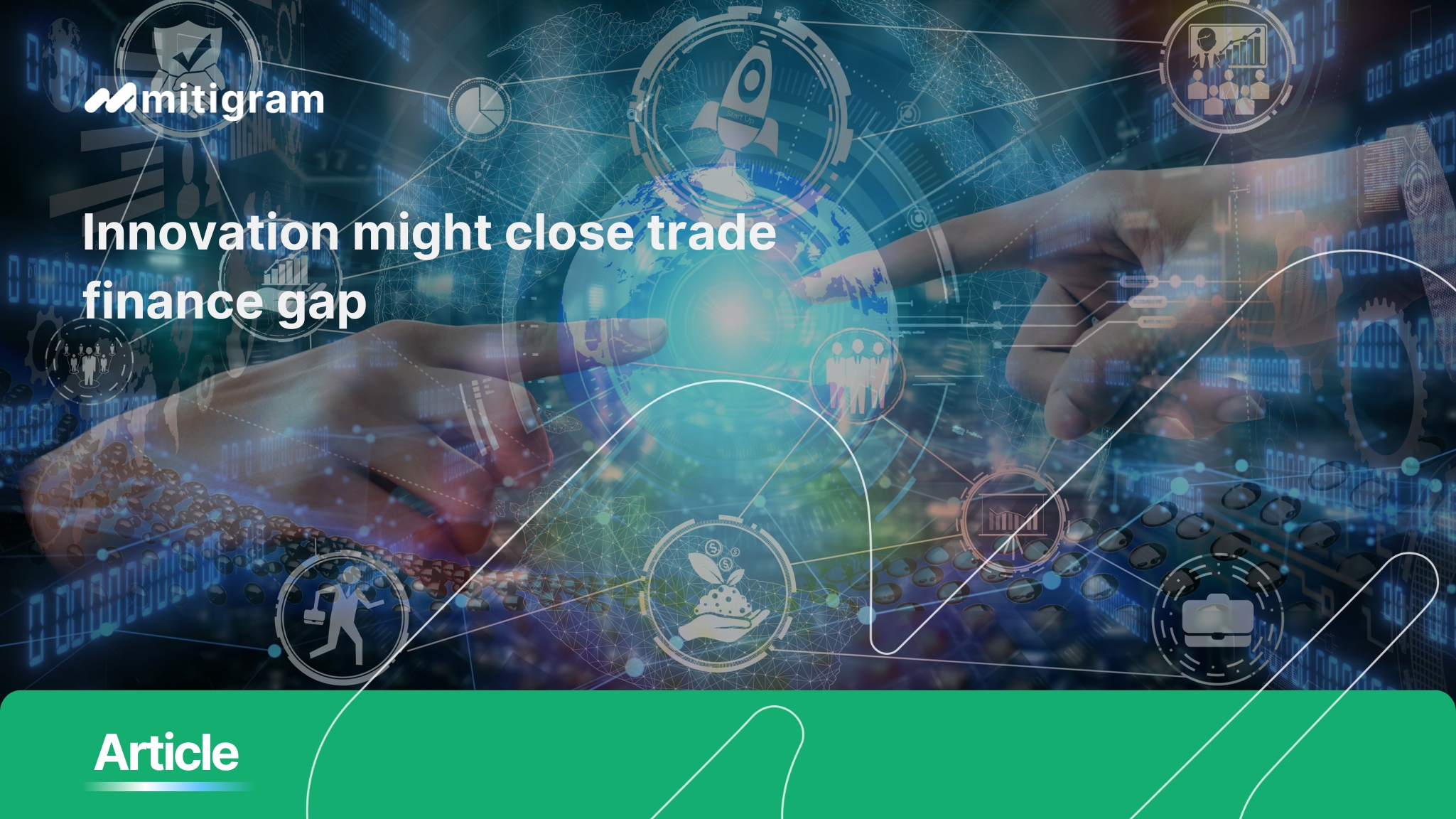
COVID-19 has shown to the world the true colors of centralizing manufacturing in one country, China. As the economy stopped during the first lockdown, corporates started considering the idea of distributing their manufacturing needs across the globe, mostly towards new emerging markets. That is, however, easier said than done.
According to an article published by the World Economic Forum, trade finance is one of the top 3 obstacles faced by corporates in developing countries in scaling their global manufacturing capabilities. But on the other hand, for financial institutions that have managed to consolidate a low risk model for nearly half of the countries in the world – a mere 0.2% on global average – the prospect of raising risk in order to gain more customers is a catch-22 situation. More business seems to inevitably come with more risk.
Currently, the estimated amount of rejected trade finance is around USD 1.5 trillion with a projected growth to USD 2.5 trillion by 2025. From a banking perspective, such a significant business opportunity comes with inescapable restrictions. In fact, 76% of the financial institutions interviewed by the Asian Development Bank (ADB) cite that anti-money laundering (AML) and know-your-customer (KYC) regulations are the main reasons for declined business in new potential markets.
The trade finance gap does not only afflict SMEs. According to ADB, 17% of rejected trade finance globally originated from multinational corporations. SMEs account for 45% of the total rejected trade finance.
One of the root causes of trade finance inadequacy can also be linked to the inefficiencies highlighted by lack of innovation. According to an article published by The Daily Star, a large amount of trade finance requests for quotations as well as trade finance transactions are still paper based and largely prone to human error. In the article it is quoted that in a survey commissioned by the International Chamber of Commerce, 40% of the responding financial institutions did not include digitization as one of their priorities.
In this sense, Mitigram offers corporates, traders and financial institutions an opportunity to improve efficiency as well as save time and costs in trade finance. Especially with the release of the latest module Open Market Discovery, corporates and financial institutions can explore and safely establish new business relationships in geographic areas that were not previously part of their usual trade finance scope. Thus Mitigram has established the first truly global trade finance market network.